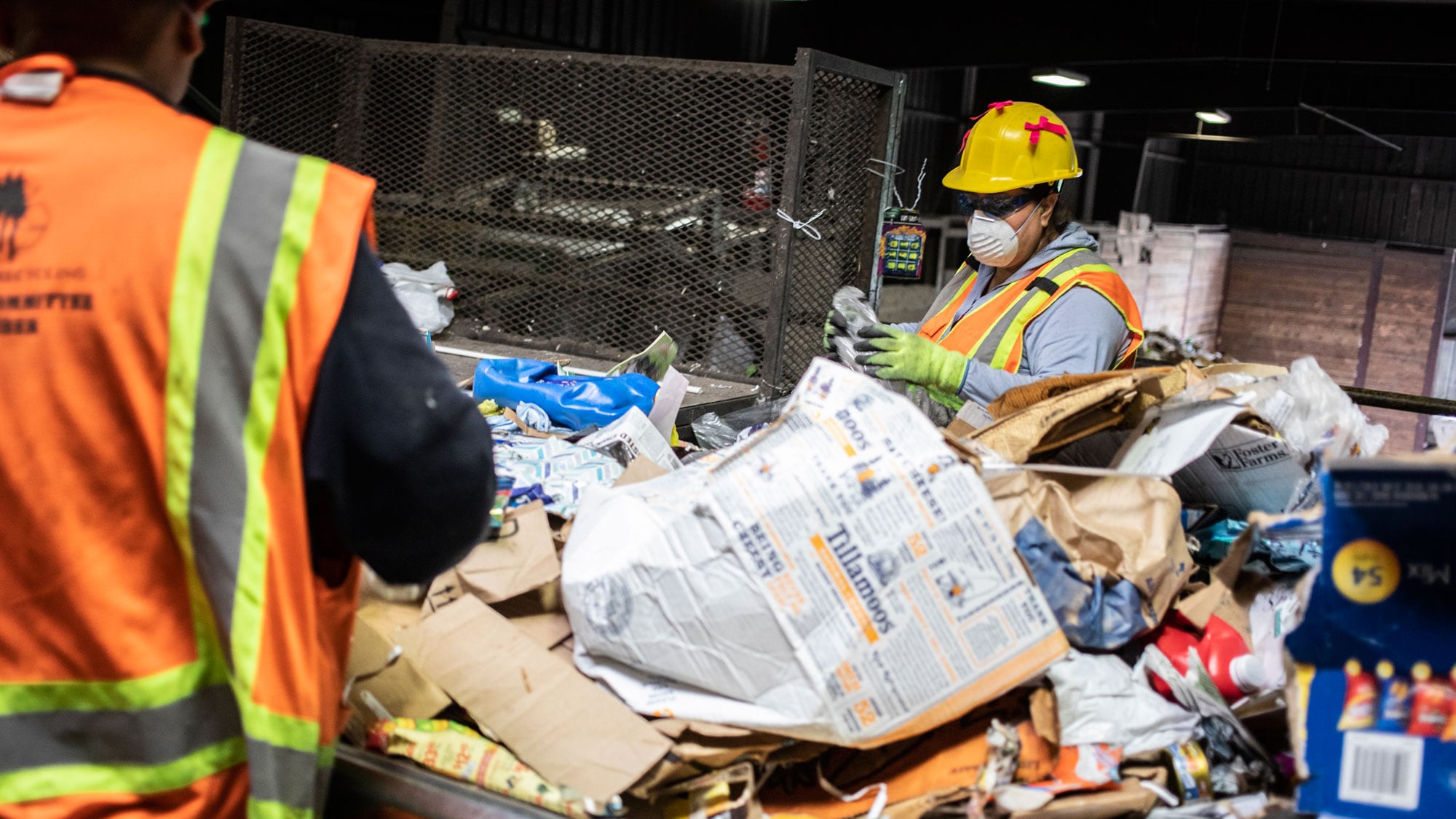The Oregon Supreme Court on May 9 ruled that police erred when in 2014 without a warrant, they seized and searched a Lebanon, Ore. couple's garbage in search of evidence the couple was producing methamphetamine. (They found such evidence and the couple was convicted.)
The court examined an issue which had come to it at least twice previously: whether such a seizure and examination of citizens' garbage violated the citizens' constitutional rights to privacy.
In a 6 to 1 decision, the court ruled that the Lebanon search was improper. That ruling changes the ground rules on how police obtain garbage in criminal cases and harks back to a high-profile dispute over the issue in Portland.
In 2002, Portland police seized and searched the garbage of a female Police Bureau officer suspected of illegal drug use. They sent one of her used tampons to the lab and after finding evidence of cocaine and meth, obtained a search warrant for her home. The search set off a legal skirmish and local officials defended PPB's regular practice of what they called "garbage pulls."
Turning the tables on those who defended the practice, WW reporters Chris Lydgate and Nick Budnick rummaged through the trash cans of Mayor Vera Katz, Multnomah County District Attorney Mike Schrunk and Portland Police Chief Mark Kroeker. The reporters then wrote a story about what they found in the three officials' bins. Spoiler alert, the late mayor and her chief were not amused.
Related: RUBBISH! Portland's top brass said it was OK to swipe your garbage–so we grabbed theirs.
In written opinion for the majority Justice Lynn Nakamoto referred to the WW story:
Indeed, [Lebannon] defendants make exactly that point, suggesting that most Oregonians would be outraged were their garbage subject to such examination and citing as support an article first published on December 23, 2002, in the Portland publication Willamette Week. The article catalogued items that its reporters had found by collecting the curbside garbage or recycling of three government officials in Portland then serving in law enforcement roles: the city's police chief,
the mayor and commissioner of police, and the Multnomah County District Attorney. The reporters described what they had done as a "frontal assault" on privacy and reported some of the officials' angry reactions to having their per-
sonal refuse removed from curbside and publicly examined, including the mayor's statement that she considered "Willamette Week's actions in this matter to be potentially illegal and absolutely unscrupulous and reprehensible."
Yesterday's ruling, which was first reported by The Oregonian, departed from two previous Oregon Supreme Court decisions on similar searches, finding the the defendants retained a privacy interest in their garbage even after their trash hauler picked up their bin and turned it over to police.
Their reasoning: In the past, the court decided that once a third party, such as a trash hauler picked up a bin, the trash hauler could do whatever it wanted to with the trash, including giving it to police.
But in the new decision, the court decided that the Lebanon trash hauler was acting as an agent of the Lebanon police and was therefore indistinguishable from the police. The justices decided police would need to have obtained a search warrant prior to grabbing the garbage.
Not doing so "plainly invaded defendants' constitutionally protected privacy interests," Nakamoto wrote.
The case will now be sent back to Linn County Circuit Court.
